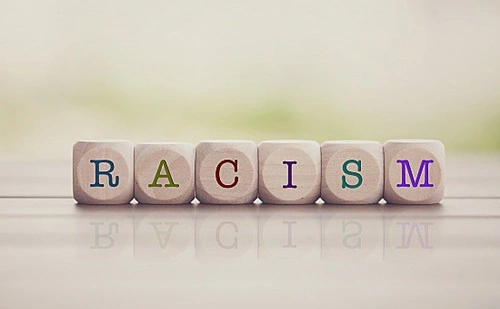No, right here in the United States, Racism itself is not illegal. And that’s mainly because in the USA, you have the absolute freedom of speech and expression, so technically, you can be racist against somebody, and no legal action will be taken against you. Though, it is the moral question which you should be asking yourself, like is it really a good or morally right thing to be racist against somebody? Let’s talk about it a little more and discuss the laws behind it all.

What Exactly Is Racism?
First of all, racism means that a person is treated unfairly because of their race, the color of their skin, or their place of origin. It can manifest in deeds, policies, or even words that evoke the least possible status in the victimized ones because of their identity.
However, the main thing here is that in the US, it is not always against the law to have racist thoughts or to say something racist. The reason why it is unlawful is when those ideas become deeds like for instance, the cases of discrimination, harassment, or violence due to race. Now, let us understand how racism is dealt with in law.
A Quick Look at Racism in U.S. History
Racism in America is a very old thing. It started with slavery and was there all the time through segregation, which was a period when people of different races were separated and provided with unequal rights.
The Civil Rights Movement of the 1960s left an enormous impact; it not only uprooted segregation but also resulted in the passing of powerful legislation that guaranteed equal rights. However, racism has not been totally eradicated. There is a large number of people who are discriminated against in the places of work, educational institutions, and the police force, and this is happening frequently. Therefore, it is true that the laws have gotten better, but the problem still lurks.
Why Racist Speech Isn’t Always Illegal
The First Amendment of the U.S. Constitution ensures the citizens of the United States the right to free speech, that is, basically the right to speak one’s mind, including offensive or racist speech. Hence, members of society are allowed by law to talk freely about what they think, even if their views are hateful and fallacious to a great extent.
However, there are limits. Words that cause direct harm or encourage violence cross the line. For example:
- If someone threatens another person because of their race, that’s illegal.
- If racist speech is meant to start violence or a fight, it can also be illegal.
If a racist statement is spoken, then that will be a morally wrong act; however, in most cases, it will be allowed by law. Thus, this fact is the main point that is referred to when the statement “Hate speech is legal in the U.S.” is mentioned. More exactly, these are the times when the law’s safeguards do not extend to the speech.
When Racism Becomes Illegal
Well, this is the moment when the jurisdiction enters the scene. The US possesses rigorous laws against discrimination, which prohibit the occurrence of racial bias in everyday life, being that such discrimination is unlawful.
For example:
- The Civil Rights Act of 1964 prohibits any discrimination based on race in employment, provision of accommodation, or services.
- The Fair Housing Act aims to end racism in housing sales or rentals.
- The Voting Rights Act guarantees that no one is treated differently because of their race at the time of voting.
- Besides that, under the 14th Amendment, the government is required to treat people equally regardless of their race.